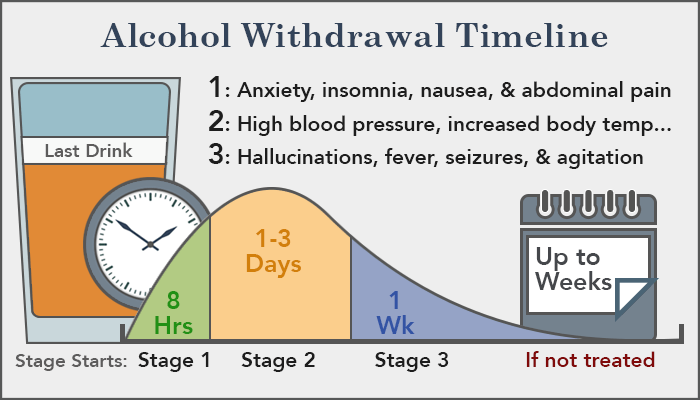Coping with alcohol withdrawal can be challenging, but understanding what to expect during the experience can help mentally calm oneself. Alcohol withdrawal can be outlined into three stages:
Stage 1: Stress/anxiety, restlessness, nausea, and abdominal pain can be included in this stage, which begins 8 hours after the last drink.
Stage 2: High blood pressure, mild fever, faster heart rate, shaking, and sometimes confusion come with this stage, which begins 24-72 hours after the last drink.
Stage 3: Hallucinations, a higher fever, seizures, and agitation may occur in this stage, which tends to begin 2-4 days after the last drink.
All symptoms tend to decrease within 5-7 days.

The repeated alteration of the dopamine levels in the body makes your brain expect more of it, which in turn sends signals to create less dopamine.
So the more you drink, the less the body naturally produces it which can lead to the side-effects described above.
The side-effects of alcohol withdrawal can vary depending upon the person such as the frequency and volume, medical history, mental disorders and past trauma. Therefore, each person may not go through every stage of withdrawal.
The most serious form of alcohol withdrawal is delirium tremens (DTs), which occurs in 3-5 percent of individuals in alcohol withdrawal, according to the New England Journal of Medicine (NEJM), and it can be fatal without treatment.
If you need counseling, speak with a treatment advisor 24 hrs a day at: 888-213-1552














